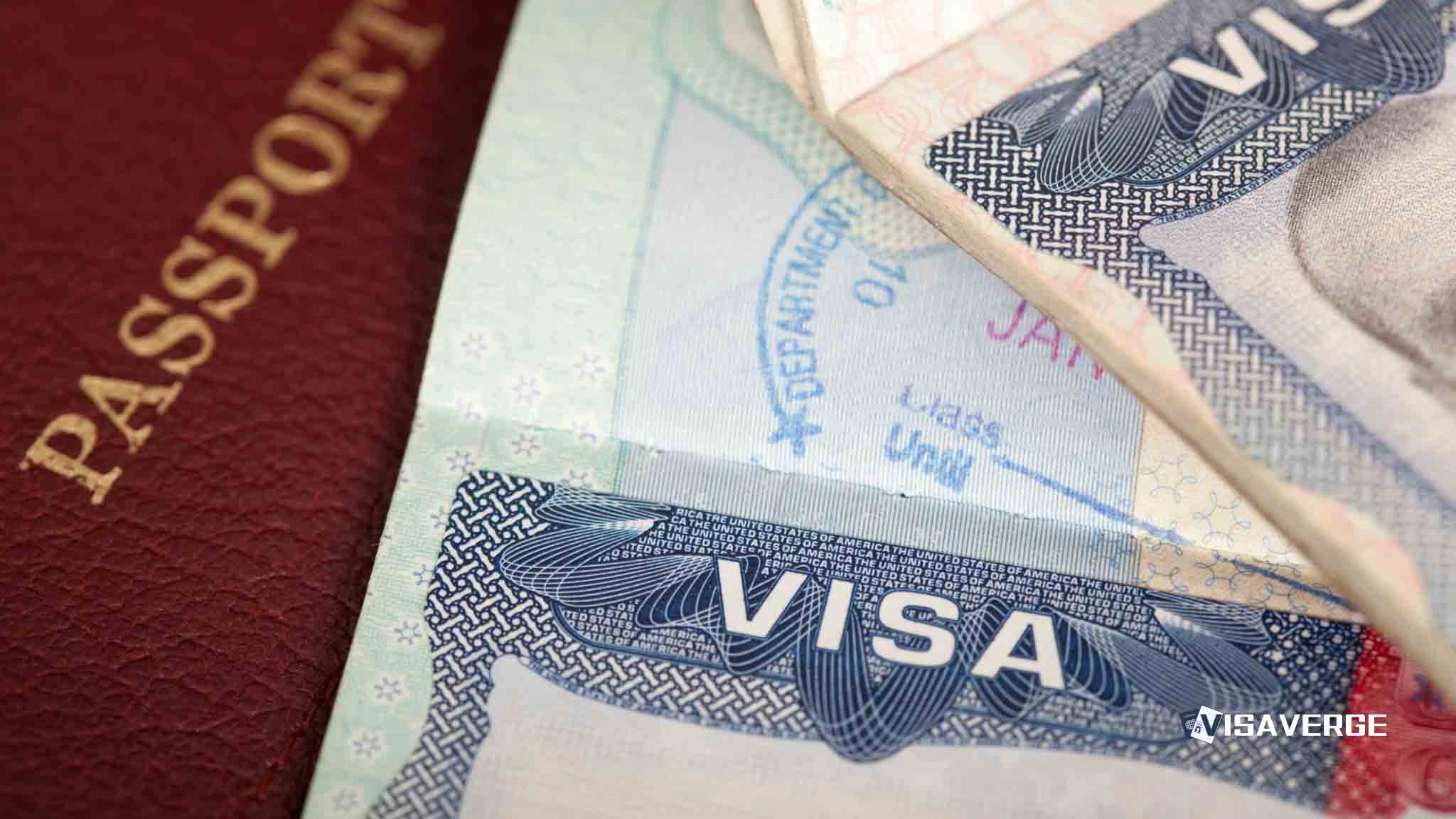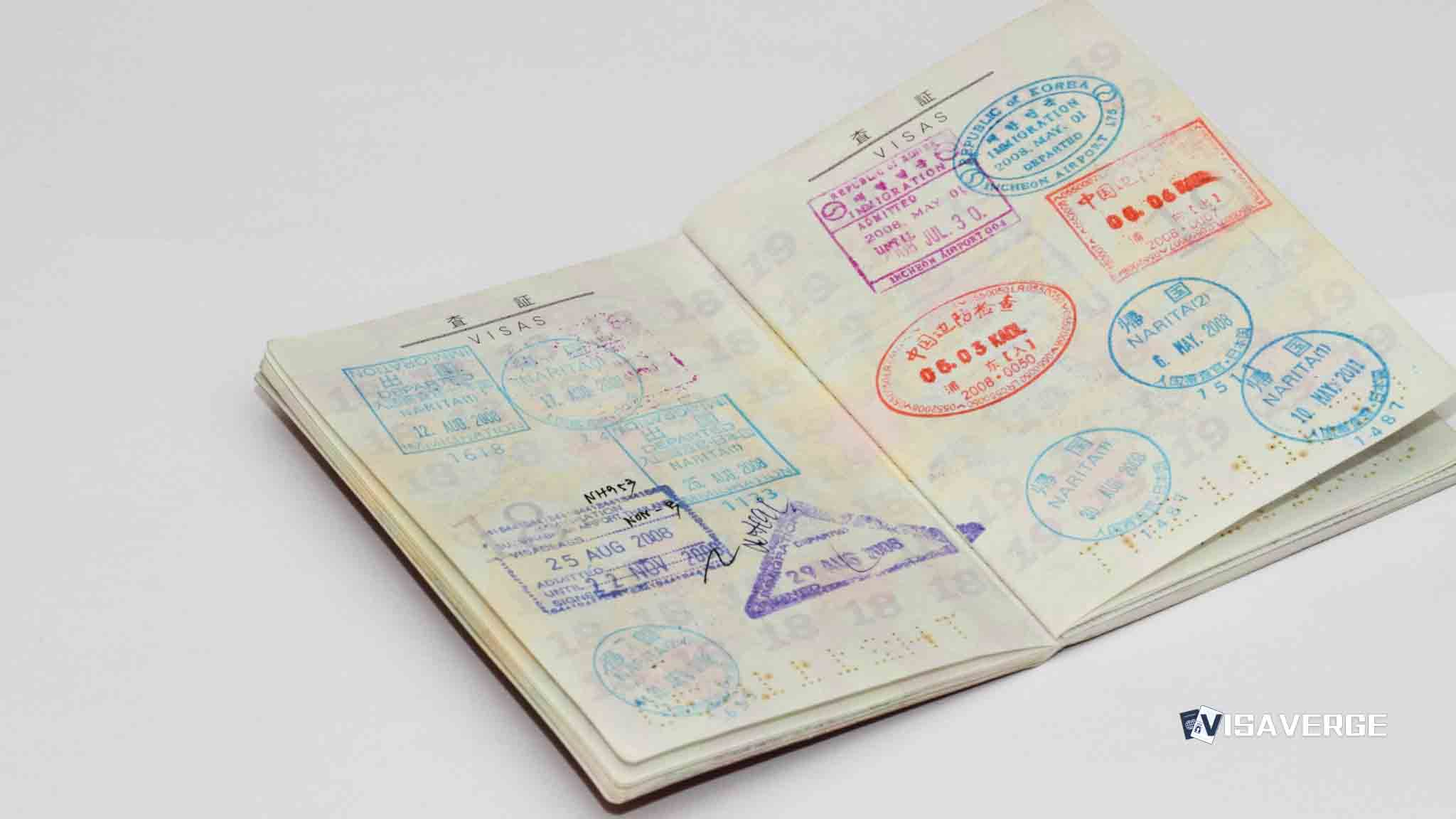Navigating the complex world of U.S. immigration can be challenging, particularly when determining the most appropriate visa category for an individual’s circumstances. Two visa types that often cause confusion are the U visa and the DV (Diversity Visa) visa. Understanding the critical differences between the U visa vs DV visa is essential for prospective applicants, and in this breakdown, we aim to clarify their pros and cons for easy understanding.
What is a U Visa?
The U visa is a nonimmigrant visa designed for victims of certain crimes who have suffered mental or physical abuse and are willing to assist law enforcement in the investigation or prosecution of criminal activity.
Eligibility Criteria:
- The individual must have suffered substantial physical or mental abuse as a result of being a victim of qualifying criminal activity.
- The individual must have information concerning the criminal activity.
- The individual must have been helpful, is being helpful, or is likely to be helpful to law enforcement, prosecutors, or other authorities.
Pros of U Visa:
- Offers temporary legal status and work authorization in the United States for up to four years.
- It provides a pathway to permanent residency after three years.
- It allows for certain family members to join the applicant in the U.S.

Cons of U Visa:
- There’s a cap of 10,000 U visas each fiscal year, leading to long backlogs and wait times.
- The qualifying criminal activities are specific, and not all victims of crime are eligible.
What is a DV Visa?
In contrast, the Diversity Visa program, also known as the green card lottery, is aimed at diversifying the immigrant population in the United States by selecting applicants from countries with low immigration rates to the U.S.
Eligibility Criteria:
- Applicants must be from an eligible country with low rates of immigration to the United States.
- They must meet the education or work experience requirement, which is at least a high school education or its equivalent or two years of work experience in an occupation requiring at least two years of training or experience.
Pros of DV Visa:
- Provides a direct path to a Green Card, entailing permanent residency in the U.S.
- The application is straightforward and free, excluding visa fees upon selection.
- Diversity Visa entrants can bring their spouse and children under the age of 21.
Cons of DV Visa:
- A limited number of DV visas (approximately 50,000) are available each year, making the selection competitive.
- The program may not be available to individuals from countries with high U.S. immigration rates.
- Random selection does not guarantee that all applicants with necessary qualifications will receive a visa.
Comparison and Considerations
When comparing U visa vs DV visa, it’s clear that they cater to different needs and situations. The U visa is for individuals who have been victims of crimes and cooperated with law enforcement, offering a humanitarian response to a pressing need. On the other hand, the DV visa provides an opportunity for a diverse range of individuals from underrepresented countries to immigrate to the U.S.
Prospective applicants should consider their eligibility, the objective of their U.S. stay, and their long-term goals when deciding between these visa types. For instance, if an individual has been a victim of a crime and is aiding law enforcement, a U visa might be a suitable route. Conversely, if the goal is to permanently live in the U.S. without such constraints, and one is from an eligible country, the DV visa could be an option.
It’s essential for applicants to understand that both visas require careful preparation and adherence to strict application procedures. Consulting with an immigration attorney and using reliable resources like the U.S. Department of State’s Bureau of Consular Affairs website can help navigate the process.
Conclusion
In summary, while both U visas and DV visas offer pathways to legal status in the U.S., they serve distinct purposes and populations. By considering the pros and cons of each, and thoroughly reviewing eligibility criteria, applicants can make informed decisions about their immigration journey. Whether seeking refuge from criminal victimization or aiming for the diverse tapestry of American residency, these immigration visa comparisons illuminate the path to achieving personal and legal aspirations in the United States.
Still Got Questions? Read Below to Know More:
I won the DV lottery, but my child turns 21 soon; can they still come with me
If you’ve won the Diversity Visa (DV) Lottery and are concerned about your child who is about to turn 21, there’s an important concept called the “Child Status Protection Act” (CSPA) that might help. The CSPA was created to protect children from “aging out” due to visa processing delays. Here’s how it may apply:
- First, calculate your child’s CSPA age by taking their actual age and subtracting the number of days the DV lottery application was pending before you won. Your child’s CSPA age is what determines their eligibility to be considered a child for immigration purposes.
- The critical condition is that your child must seek to acquire the visa within one year of the visa becoming available. The visa is considered available on the date your DV lottery win is announced. So if your child’s CSPA age is under 21, and they apply within this one-year period, they could still be eligible to immigrate with you.
The U.S. Department of State provides guidance on the Child Status Protection Act, and it’s crucial to ensure all steps are followed accurately. For the most detailed instructions and information, you should refer to the official U.S. Citizenship and Immigration Services (USCIS) policy manual on CSPA:
“A child who has turned 21 but who you believe may still qualify for immigrant visa issuance under CSPA should submit the necessary application and fees to the National Visa Center (NVC) immediately after being notified that they must do so.”
You can find more information and the steps to take on the official U.S. Department of State CSPA page and the USCIS Policy Manual CSPA section. Remember to act promptly and consult with an immigration attorney if you need personalized legal advice.
Can my uncle apply for a U visa if he witnessed a crime but wasn’t hurt
Yes, your uncle might be eligible to apply for a U visa even if he was not physically hurt during the crime. The U visa is designed for victims of certain crimes who have suffered mental or physical abuse and are helpful to law enforcement or government officials in the investigation or prosecution of criminal activity. If your uncle witnessed a crime and has information that could be helpful to the authorities, he may qualify under the helpfulness criteria.
The requirements for a U visa include:
- Being the victim of qualifying criminal activity.
- Having information about that crime.
- Suffering substantial physical or mental abuse as a result of the crime.
- Being helpful to law enforcement in the investigation or prosecution of the crime.
If your uncle has been cooperative with the police or other law enforcement agencies investigating the crime, this could demonstrate the required helpfulness. It is important to note that U visa eligibility is not strictly limited to those who are injured, as victims who are emotionally or psychologically affected are also considered.
For more information and to check if your uncle’s specific situation qualifies him for a U visa, you should refer to the official United States Citizenship and Immigration Services (USCIS) page about U visas here: Victims of Criminal Activity: U Nonimmigrant Status.
Please consider consulting with an immigration attorney who can provide personalized guidance and assistance with the application process for a U visa.
Are there any other visas I can apply for if I don’t meet the crime victim or DV lottery requirements
Absolutely, there are several other visa options available if you do not qualify for the U Visa (crime victim visa) or the Diversity Visa (DV Lottery). Depending on your circumstances, professional background, or reasons for wanting to immigrate, you may consider the following alternatives:
- Family-Based Visas: If you have close relatives who are U.S. citizens or lawful permanent residents, they may be able to sponsor you for a family-based visa. This includes spouses, children, parents, and sometimes siblings.
- Employment-Based Visas: For individuals with a job offer in the U.S., there are various types of employment-based visas, such as the H-1B for specialty occupations, L-1 for intracompany transferees, or the E-3 for professionals from Australia, among others.
- Student and Exchange Visitor Visas: If your goal is to study in the U.S., the F-1 or M-1 visas might be suitable, while the J-1 visa is for those participating in work-and-study-based exchange visitor programs.
It’s important to consult the official U.S. Citizenship and Immigration Services (USCIS) website or the U.S. Department of State – Bureau of Consular Affairs to explore the full range of visa categories and to find out which one aligns best with your situation. Here are two relevant links to their websites:
- U.S. Citizenship and Immigration Services (USCIS): Visa Categories
- U.S. Department of State – Bureau of Consular Affairs: Visa Types
Remember, each visa has its own eligibility requirements and application process, so make sure to carefully review these details before applying. You may also consult with an immigration attorney or an accredited representative for personalized guidance.
What happens to my U visa if the police no longer need my help with the case
If you have a U nonimmigrant visa (U visa), which is designed for victims of certain crimes who have suffered mental or physical abuse and are helpful to law enforcement or government officials in the investigation or prosecution of criminal activity, you might wonder what happens to your status if the police no longer need your assistance.
Generally, the U visa is granted for up to four years. According to U.S. Citizenship and Immigration Services (USCIS), your U visa status may not be automatically revoked if law enforcement no longer requires your assistance. Once you are granted a U visa, you are allowed to remain in the United States for the duration of the visa’s validity period, unless there are grounds for termination of your status. This could include things like committing certain crimes or violating the terms of your U visa status.
Moreover, USCIS states:
“Any requests to terminate a U nonimmigrant’s status solely because the victim has refused to provide assistance in a criminal investigation or prosecution must be referred to Headquarters for review.”
If your situation changes and law enforcement no longer needs your help while you are still holding a U visa, it is essential to reach out to an immigration attorney or contact USCIS for guidance on your specific case. If you maintain eligibility, you may still be able to apply for a Green Card (permanent residence) after three years of having U visa status. This process involves certain eligibility requirements that must be met, which are outlined by USCIS (https://www.uscis.gov/green-card/green-card-eligibility/green-card-for-u-nonimmigrant).
For more detailed and case-specific guidance, refer to the USCIS official website and resources or consult with a licensed immigration attorney.
If my country’s not eligible this year, can I try for a DV visa next year instead
Yes, if your country is not eligible for the Diversity Visa (DV) program this year, you may try for a DV visa next year, provided your country’s eligibility status changes. The eligible countries for the DV program are determined by the U.S. Department of State and can vary from year to year based on the immigration patterns to the United States. If fewer immigrants from your country have come to the U.S. in the past five years, your country might become eligible again.
Keep in mind the following points:
- Check Annually: You should check the updated list of eligible countries when the new DV lottery instructions are published each year, usually in the fall.
- Qualifications: Ensure you meet other qualifications for the DV program, such as having at least a high school education or two years of qualifying work experience.
- Timely Application: Should your country become eligible, apply within the designated registration period for that year’s DV lottery.
The U.S. Department of State’s Bureau of Consular Affairs provides an official list of countries whose natives are eligible to apply for the Diversity Visa Program. To stay informed about which countries are eligible for the upcoming DV lottery, you should regularly check the official DV Lottery Instructions available on the U.S. Department of State’s website. Here is a link to the DV Program Instructions page for reference: DV Program Instructions.
Remember, the list of ineligible countries may change every fiscal year based on the immigration statistics and the allotted visa numbers. If your country is not on the eligible list this year, there’s a chance it could be included next year, so staying updated with the official announcements is crucial.
Learn today
Glossary or Definitions Section:
- U Visa: A nonimmigrant visa designed for victims of certain crimes who have suffered physical or mental abuse and are willing to assist law enforcement in the investigation or prosecution of criminal activity. It offers temporary legal status and work authorization in the United States for up to four years, with a pathway to permanent residency after three years.
- DV Visa: Also known as the Diversity Visa program or green card lottery, it aims to diversify the immigrant population in the United States by selecting applicants from countries with low immigration rates to the U.S. It provides a direct path to a Green Card, entailing permanent residency in the U.S.
-
Qualifying Criminal Activity: Criminal activities that are eligible under the U visa program and includes offenses such as domestic violence, sexual assault, human trafficking, and other serious crimes.
-
Eligible Country: A country whose citizens are eligible to participate in the Diversity Visa program based on low rates of immigration to the United States.
-
Work Experience Requirement: The requirement for Diversity Visa applicants to have at least a high school education or its equivalent, or two years of work experience in an occupation requiring at least two years of training or experience.
-
Green Card: A common term for a Permanent Resident Card, which is an identification card that grants non-U.S. citizens the right to live and work in the United States permanently.
-
Visa Cap: The maximum number of visas that can be issued in a fiscal year. The U visa has a cap of 10,000 visas, while the Diversity Visa program has a cap of approximately 50,000 visas.
-
Backlogs and Wait Times: The time it takes for an application to be processed and for a visa to be issued due to the high demand and limited availability of U visas and Diversity Visas. This often leads to delays and a backlog of pending applications.
-
Immigration Attorney: A lawyer who specializes in immigration law, providing legal assistance and representation to individuals navigating the immigration process.
-
Bureau of Consular Affairs: A division of the U.S. Department of State that handles visa services, including processing visa applications, conducting interviews, and issuing visas at U.S. embassies and consulates worldwide.
In conclusion, when it comes to U visa vs DV visa, it’s important to understand their differences and choose wisely based on individual circumstances. If you’ve been a victim of a crime and want temporary legal status, the U visa may be the way to go. However, if you’re from an eligible country and dream of permanent residency, consider the DV visa. Still curious and want to explore further? Head to visaverge.com for more immigration insights and guidance. Happy exploring!








